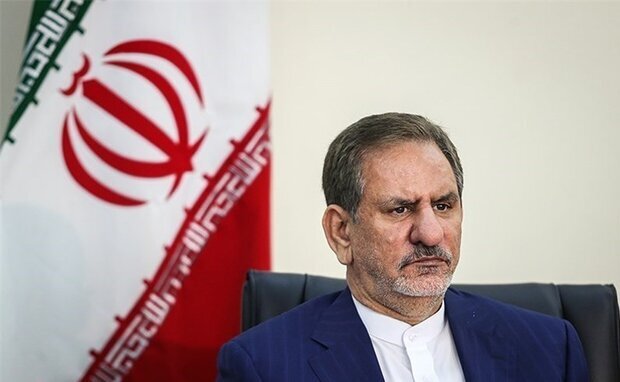Washington giving out signals for talks: Jahangiri

TEHRAN — Having failed to overthrow the Islamic Republic or cause the Iranian economy to collapse, the Americans are now after holding talks with Iran, according to Vice President Es’haq Jahangiri.
In remarks on Sunday, Jahangiri said the unilateral U.S. sanctions were imposed in order to overthrow the Islamic Republic but failed to reach their goal.
“When they lost hope to reach their goal, they sought to cause economic collapse,” he said. “Of course, our economy has been hurt by the sanctions, but now that they lost hope to reach both of their goals, they ask Iran to come to the negotiating table and they give a green light for that.”
Tensions between Iran and the U.S. have been high since U.S. President Donald Trump pulled out of the nuclear deal in May 2018 and re-imposed sanctions on all major industries in Iran, including oil and petrochemicals exports.
“Now that they lost hope to reach both of their goals, they ask Iran to come to the negotiating table and they give a green light for that,” says Jahangiri.
The Trump administration’s sanctions were imposed under the banner of a “maximum pressure” policy against Iran.
Tehran says the U.S. “maximum pressure” has produced “maximum resistance” from Iran.
The U.S. government has also made empty calls for talks, but Iran has made it clear that negotiation is always possible within existing framework of the nuclear deal and only if the U.S. returns to the deal and honors its commitments. Tehran has emphatically rejected any prospect of bilateral talks with the U.S.
Leader of the Islamic Revolution Ayatollah Ali Khamenei has ruled out the notion that “settlement of Iran’s problems hinges on rapprochement with the United States.”
Also, the new parliament in Iran has taken a tougher stance against talks with the U.S. compared to the previous one.
Mohammad Bagher Ghalibaf, the parliament speaker, said in his first address to the parliament that talks and compromise with the United States are “harmful” to the country.
“The 11th Majlis considers anti-arrogance as both an ideological doctrine and as a strategic interest. Negotiations and compromise with the United States, as the axis of global arrogance, are considered fruitless and harmful,” he said back in May.
On June 21, Ghalibaf said Iran has never been against negotiations with other countries, however “we believe talks with the U.S. are poisonous and harmful.”
The parliament speaker also rebuked the European countries that sponsored the anti-Iran resolution at the IAEA board, saying any future talks with the Europeans will also be held with “maximum distrust”.
MH/PA
Leave a Comment